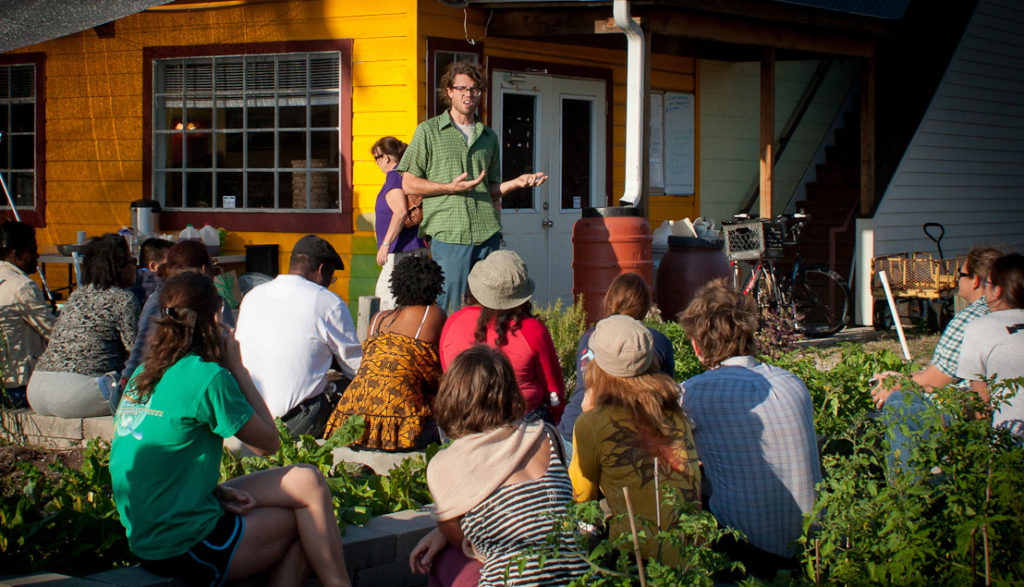BCBSLA Foundation staff writer
Successful farming is about more than just knowing how to nurture the land and grow a few patches of, say, strawberries…
Where does our farmer sell that perfectly produced berry? And how does he do it without filling the berry, the soil, the skies with environmentally harmful chemicals? Or what if a freeze destroys our farmer’s field before a crop is even picked — should the family surviving on those profits starve?
There are answers to all of these questions, say our partners with Growing LA (a Challenge for a Healthy Louisiana grant-supported initiative). And helping farmers find those solutions is the point behind a series of training classes now held periodically in the New Orleans area. It’s a chance, says Sanjay Kharod, Executive Director of the New Orleans Food and Farm Network, a Growing LA partner, to empower existing farmers. And attract new ones (the average age of today’s farmer is 60 years old, making it, quite literally, a rapidly aging and withering profession). In the 1700’s, 90% of Americans were farmers. Today, that number is less than 2%, Kharod points out. 
“The intent of our farmer training programs is to grow the growers,” Kharod said. “If we think about the future of our food system, it’s got to be built somehow by people. And those people are farmers.”
More importantly, local farmers, Kharod said.
It’s a startling fact that most of the food consumed here in Louisiana comes from farms 1500 miles (or more) away. Ninety percent of many basic foods we eat (mushrooms, artichoke, garlic, asparagus) comes from places like central California, where an extreme water drought has meant prices for the food they produce, and we eat, are dramatically higher.
“When my kids are eating vegetables,” Kharod said, “I tell them they are eating the very scarce water supply in California. It’s a totally unsustainable food model.”
But we don’t have drought problems here, in Louisiana, of course. Just one more reason to promote local farming. Producing food locally makes it cheaper, and our economy stronger. And with the rise of urban farming techniques, even a New Orleans dweller can thrive as a food producer. In fact, urban farming is a major focus in each training session, emphasizing that lack of land doesn’t mean lack of opportunity for farmers. Hydroponic and recirculating farming techniques mean even the smallest land owner, hampered by a city’s asphalt jungle, can produce big results.
“Farming is something people need to be re-trained to do,” Kharod said. “There’s the technical side of farming, and then there’s the business side, too. It’s about understanding how to make money off that very low margin for error. Not everyone can sell to restaurants or fancy bistros. Maybe they’ll make lots of small amounts of money on some things, and have some stable areas of income in other ways. Like the ‘whole food’ idea in our schools — that becomes another market for farmers. What we’re trying to do is help farmers realize how they can have a sustainable business.”
Earlier this week, Kharod’s group led the latest training class, “Transforming Your Urban Farm into a Sustainable Business,” covering topics like how to get government grants and loans to buy new equipment, how to write a business plan, how to expand your market…
Says Kharod, “We want farmers to learn how they can take care of their land and provide for their families. And how to do it in a way that’s sustainable to the environment, not because it’s the right thing, but because they can make a living doing it.”
For more information on upcoming farmer training classes, contact Kharod at sanjay@noffn.org or check out the New Orleans Food & Farming Network website.

